Although autumn has just barely begun, it’s already time for companies to start thinking about their content marketing strategy for the coming year. In late September, the Content Marketing Institute published the results of its much-anticipated annual survey, “B2B Content Marketing 2018: Benchmarks, Budgets and Trends.” Here, I’ll highlight some of the survey’s most interesting findings, talk about their implications for marketers, and link to some helpful content to get you prepped for 2018.
Who Are the B2Bs?
First, the survey demographics. A total of 870 respondents of for-profit B2B companies are represented in the report spanning multiple industries such as technology, agencies, manufacturing, professional services, consulting, financial services, publishing, healthcare, insurance and more. Annual revenues ranged from less than $1 million to more than a billion.
Content Marketing in Practice
Content marketing is far from niche—out of all the survey’s participants, a whopping 91 percent say they use content marketing.
Of that 91 percent, 31 percent classify their organization’s content marketing efforts as being in an “adolescent” stage of maturity.
When it comes to in-house content marketing, more than 50 percent of all respondents use a small (or one-person) team to serve the entire organization.
When outsourcing content marketing activities, nearly half use third-party teams to write, design and produce content.
Growing Success
Good news for content marketing: only 2 percent of marketers have seen zero positive results from their content marketing approach.
Even better, 63 percent of respondents consider their current content marketing efforts to be somewhat or much more successful than last year’s.
The primary reason for that increased success? Higher-quality, more efficient content creation.
The Creative Process
Overall, most respondents are relatively happy with the efficiency of their content creation process. (You can learn how to create a more effective content creation process here.)
During that process, 94 percent of marketers strive to ensure that their content is fact-based and/or credible, 72 percent consider the impact their content has on customers’ overall experience and 70 percent prioritize quality over quantity.
Wondering what kind of content you should focus on creating? Keep in mind that 62 percent of the most successful respondents use ebooks and white papers for content marketing purposes, followed by case studies (47 percent) and social media posts (43 percent).
To distribute that content, 79 percent of the most successful marketers use email, 60 percent use blogs and 41 percent use social media platforms. (You can learn more about why blogs are so effective in an earlier bizbuzzcontent blog post here.)
Dollars and Cents
On average, content marketers spend 26 percent of their total marketing budget on B2B content marketing. When we isolate the most successful marketers, that number jumps up to 40 percent.
In the coming year, almost half will spend the same amount on B2B content marketing as they did last year, while nearly 40 percent will spend more.
The Bottom Line
Looking at the bigger picture, we can identify patterns in the behaviors of the most successful content marketers.
Here are the need-to-know numbers when it comes to content marketing’s top performers:
- Ninety-two percent are focused on building audiences
- Eighty-nine percent are extremely/very committed to content marketing
- Eighty-eight percent value creativity and craft in content creation and production
By contrast, of the least successful content marketers:
- Sixty-five percent are focused on building audiences
- Twenty-seven percent are extremely/very committed to content marketing
- Fifty-nine percent value creativity and craft in content creation and production
So, if you want to make the most of your content marketing efforts, follow the example of B2B content marketing’s all-stars by:
- Taking the time to understand and target your audience (try creating user stories)
- Commit to creating truly stand-out content, and develop a strategy that reflects that
- Recognize that effective content creation requires a unique skill set, and have the patience to prioritize quality over quantity
Here’s to another year of fantastic content!
How are you planning to approach your content marketing strategy in 2018? Let me know!

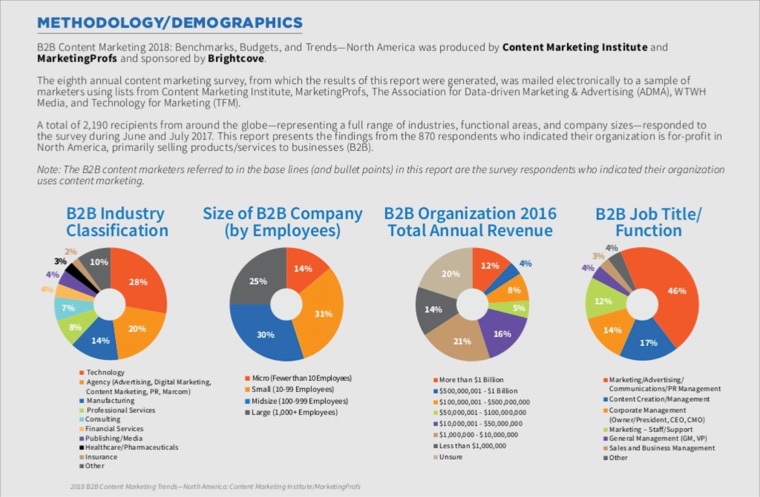
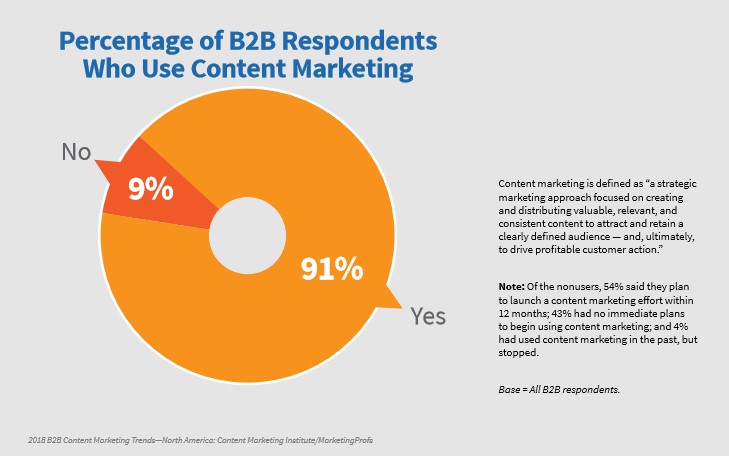
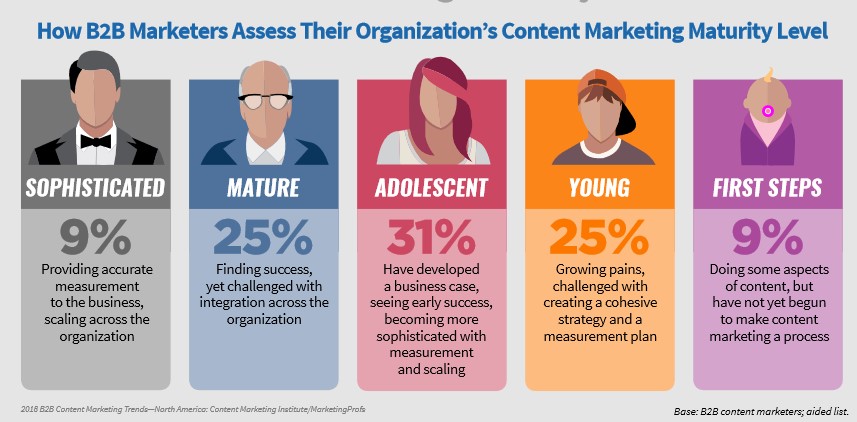
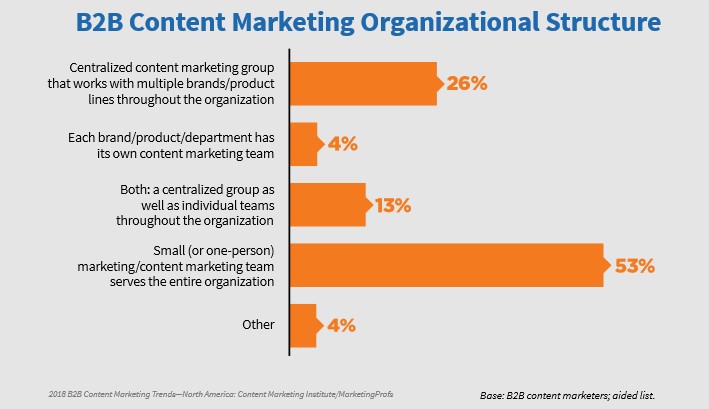

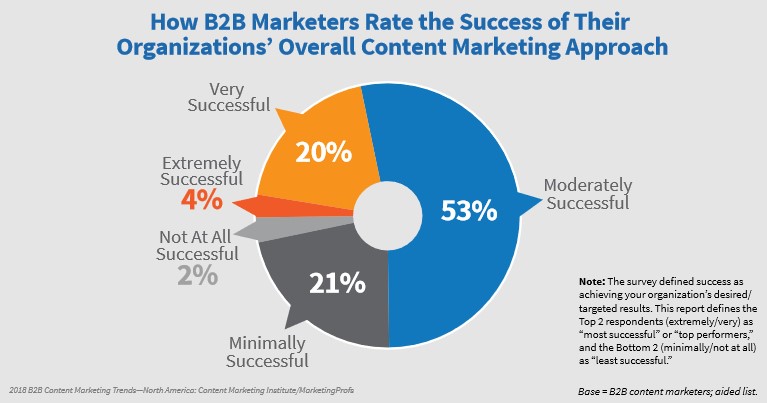
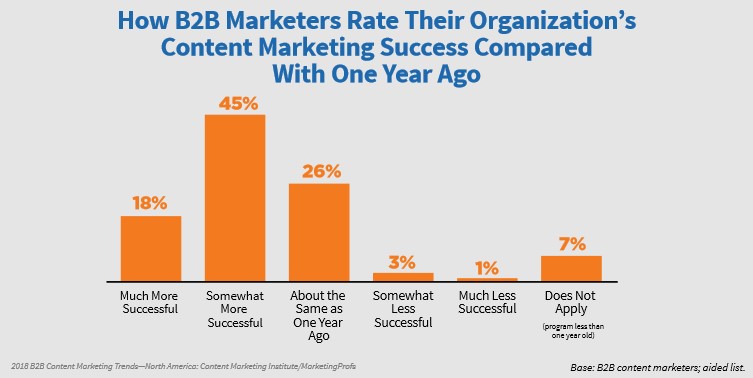
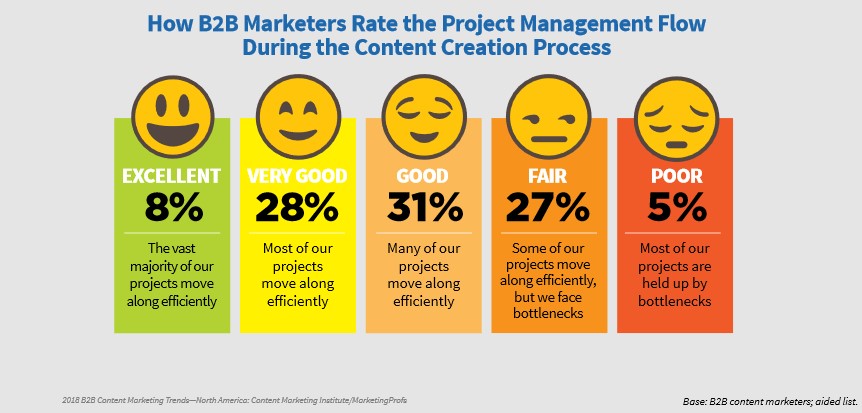
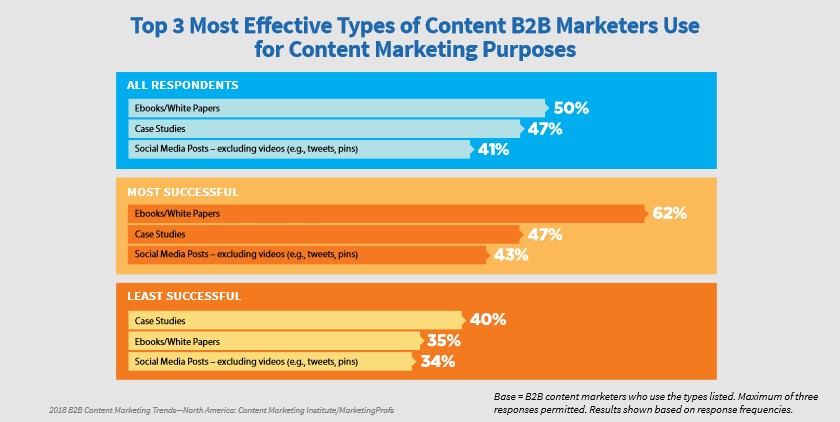
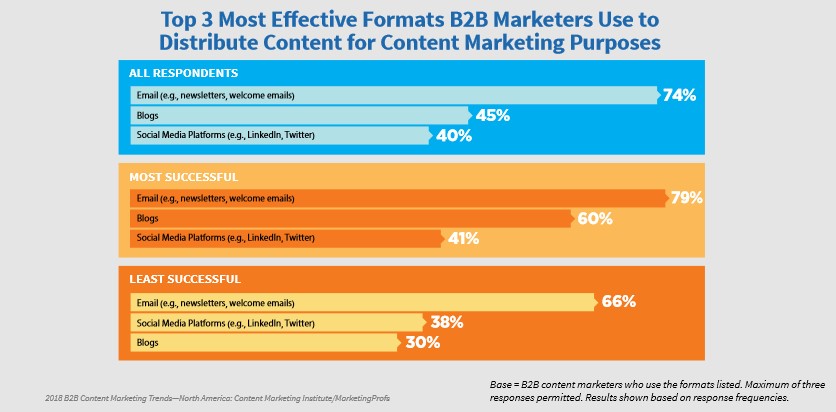
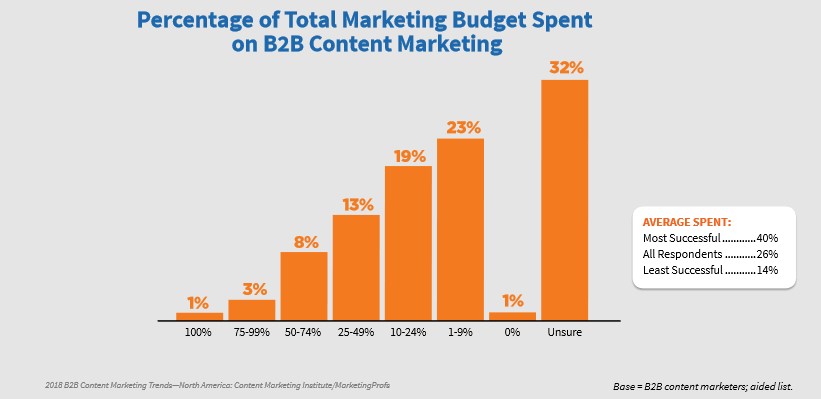

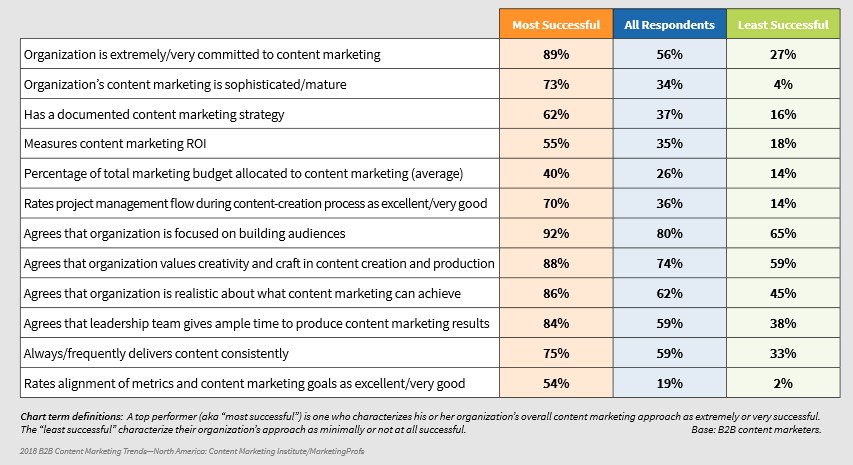
Leave a Reply